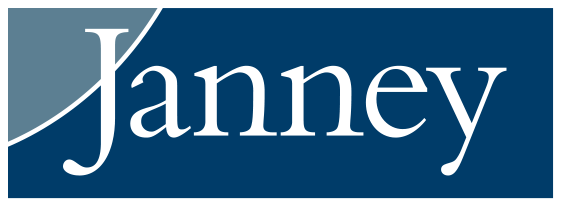Despite the challenging environment, you are still able to and should focus on traditional year-end income tax planning. While many issues are out of our control, our tax situation is not one of them. Here are several things to consider before the beginning of 2024.
1. Explore Roth Conversions
If you have considered converting your Traditional IRA or 401(k) funds to a Roth IRA, 2023 may be a fitting year to do so. Although Roth conversions generate immediate taxation, federal tax rates remain low, the markets are still off their high, and we cannot predict how much longer they will remain so. If you are reluctant to absorb a big tax bill, consider a series of smaller partial conversions over time, using up lower tax brackets. Keep in mind, Roth conversions are permanent, so be certain there are enough funds to pay the taxes before completing the conversion. All conversions must be completed by December 31 in order to qualify as 2023 taxable income.
2. Take Your RMDs
Beginning in 2023, the RMD age increased to 73, which means IRA owners age 73 or older must take RMDs. Participants in employer plans who are age 73 or older are also subject to RMDs if they do not qualify for the “still-working exception.” Beneficiaries may also be subject to RMDs.
December 31, 2023 is the deadline for most RMDs. However, there is an exception to this deadline for a person’s first RMD. If 2023 is the first year an RMD is required for a retirement account owner, the deadline for that RMD is extended to April 1, 2024.
Proposed regulations were issued earlier this year that expanded and sometimes conflicted with provisions of the SECURE Act.
One of the conflicts is related to whether people needed to take RMDs in 2020 and 2021 after the SECURE Act took effect if the plan participant had reached their required beginning date.
The IRS Notice 2022-53, provides that the IRS will not impose a penalty for missed 2021 and 2022 RMDs for those beneficiaries who inherited IRAs from owners who died in 2020 and 2021 on or after their required beginning date.
3. Consider Charitable Giving
Consider giving appreciated securities to charities and avoiding a potential taxable capital gain when sold. Avoiding the capital gains tax is one advantage, a tax deduction for those itemizing their deductions is another potential benefit, and, of course, the benefits reaped by the charity itself.
Normally, itemized deductions for cash charitable contributions can’t exceed 60% of adjusted gross income (AGI) in a single tax year. Remember, you must itemize to take advantage of this strategy. Annual income tax deduction limits for gifts to public charities, including donor advised funds, are 30% of adjusted gross income (AGI) for contributions of non-cash assets, if held more than one year, and 60% of AGI for contributions of cash.
4. Consider Qualified Charitable Distributions
Qualified Charitable Distributions, or QCDs, are distributions from your IRA account directly to a qualifying charity. IRA owners 70½ years of age and older are eligible. While the SECURE Act raised the RMD age from age 70½ to age 73, QCDs are still available at age 70½. The benefit of giving to charities from your IRA is that you do not pay income tax as you would on funds distributed from your IRA. The charity gets the full donation, and the donor does not have to claim the distribution as income.
5. Keep Tabs on the Proposed Tax Legislation—Be Prepared to Update Your Estate Plan
There have been many different tax proposals in recent years and a number of the proposals, if enacted, would have a significant impact on many Americans. Some, in fact, would dramatically alter or severely restrict traditional estate planning techniques. While it does not appear likely that any may pass in the near future, something smaller could be added on to another piece of tax legislation. The lifetime estate and gift tax exemption is increasing to $13.61 million on January 1, 2024, and the annual exclusion is increasing to $18,000 per person per year, but remember, whether new legislation is passed or not, the current exemption will sunset on January 1, 2026, and be reduced to nearly half its current amount. Therefore, it is a good time to discuss your estate planning goals with your Financial Advisor.
6. Interest Rates and the Effect on Planning
As inflation increases and interest rates rise, they can have a major impact on estate planning. The section 7520 interest rate—which is equal to 120% of the applicable federal rate and is used as a “hurdle” rate or assumed rate of return on estate planning vehicle calculations—has risen from 4.6% in January of 2023 to 5.6% in November 2023.
Qualified Personal Residence Trusts and Charitable Remainder Trusts are two vehicles that may perform well in a higher interest rate environment. A client using these techniques now may benefit by leveraging their exemption.
7. Other End-of-Year Thoughts
- When interest rates increase they have the inverse effect on bonds, i.e. bonds decrease in value. When harvesting losses in 2023, don’t just focus on stocks, look at bonds. It is easy to buy a comparable, higher yielding bond that will not be subject to the wash sales rules.
- When considering charitable techniques, don’t forget that the standard deduction is still high, and we still have limits on state taxes, so you may still want to consider bunching charitable contributions to a donor advised fund if a QCD is not utilized.
- The Inflation Reduction Act extends various tax credits, expanded certain credits and put limitations on others beginning in 2022. The new law extends an existing tax credit of up to $7,500 to individuals who buy a “clean vehicle,” that is, an electric car, plug-in hybrid, and hydrogen fuel cell vehicle. The law also provides for a used “clean vehicle” credit of up to $4,000 or 30% of the sales price, whichever is less.
8. Maximize Retirement Savings and Health Savings Accounts
IRA and Roth IRA contributions have an April 15, 2023 deadline, but employer-sponsored retirement plans need to receive contributions by December 31, 2023. Your contribution to an HSA also needs to be received by December 31, 2023.
9. Use Your Flexible Spending Accounts
Flexible Savings Accounts (FSA) follow a “use it or lose it” rule. If you funded an FSA with pre-tax dollars, be sure to use it to its full advantage. Spend down all money that you would otherwise lose on January 1, 2024.
Working With Janney
Depending on your financial needs and personal preferences, you may opt to engage in a brokerage relationship, an advisory relationship or a combination of both. Each time you open an account, we will make recommendations on which type of relationship is in your best interest based on the information you provide when you complete or update your client profile.
When you engage in an advisory relationship, you will pay an asset-based fee which encompasses, among other things, a defined investment strategy, ongoing monitoring, and performance reporting. Your Financial Advisor will serve in a fiduciary capacity for your advisory accounts.
For more information about Janney, please see Janney’s Relationship Summary (Form CRS) on www.janney.com/crs which details all material facts about the scope and terms of our relationship with you and any potential conflicts of interest.
By establishing a relationship with us, we can build a tailored financial plan and make recommendations about solutions that are aligned with your best interest and unique needs, goals, and preferences.
Contact us today to discuss how we can put a plan in place designed to help you reach your financial goals.
About the author

Related Articles
-
Financial Planning
10 Key Changes to the SECURE 2.0 Act
Saving for retirement is getting easier in 2024 thanks to SECURE 2.0. Here, we outline highlights... -
Philanthropic Giving
Tax-Smart Charitable Gifting Strategies
Take advantage of the current tax rules to support the charities you care about and save on your ... -
Tax Planning
3 Tax-Planning Considerations Ahead of Next Year's TCJA Sunset
The Tax Cuts and Jobs Act of 2017 is scheduled to sunset at the end of 2025, meaning significant ...




